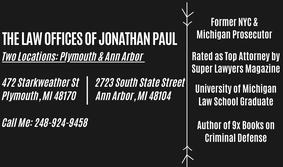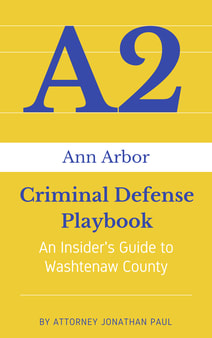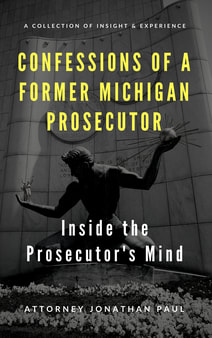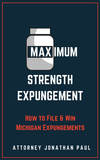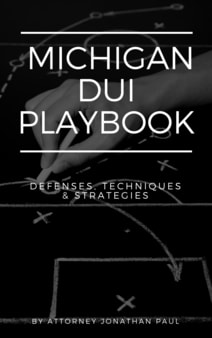Family Man, Attorney & AuthorClick to Call Me: 248-924-9458As a former prosecutor, I worked on a lot of Leaving the Scene of an Accident type cases. These charges varied depending upon the facts of the case. The most common was Leaving the Scene of an Accident Causing Property Damage, which simply means the defendant was involved in an accident and drove away. This particular charge carries 6 points on your driving record and is a criminal misdemeanor.
As a former prosecutor, I would talk to the police officer and any witnesses involved to gain a better understanding of the circumstances of this charge. Common inquires for me were the following: - what time of day did this happen? - what type of road/area did this occur? - driving record of the person charged - if the defendant has a version to share/story to offer up - how bad was the property damage, nature of the damage - any efforts by the defendant to stick around/report It made a big difference if someone with a clean record got into a minor fender bender, stopped, talked to the other driver, and after waiting for the police to arrive, decided they needed to get to work, and they drive off vs someone who destroys ten mailboxes in a neighborhood, smashes into cars and ends up flipped over in someone's yard at 2 am. Sure, both are against the law, but I applied common sense as a prosecutor. Most defendants in this situation are trying to avoid the points abstracting on their license and avoiding a criminal misdemeanor. There is a 0 point offense called failure to report an accident, which could be the end result in a negotiation; this is still a misdemeanor, but it was a start in resolving a case. As a prosecutor you have limited resource and time; you must use that time as wisely as possible and pick and choose your hearing and trials. Is the best course of action to take this type of case to trial, or should you focus on making sure all involved are OK, restitution is paid, and assurances (tangible action) the defendant will avoid future issues going forward. Most defense lawyers did not provide the last part when I prosecuted these cases. While property damage was most common, there is a separate offense for Leaving the Scene of an Accident Causing Personal Injury. This type of case might have similar facts, but another person was injured as part of the case; if the person suffered serious impairment or worse a death, the charges get more serious into the felony level with action on your driver's license. The misdemeanor "ordinary" injury charge carries 6 points and a 90-day driver's license suspension. Defendant's surely wanted to avoid these sanctions, but when someone was hurt, a lot of that decision depended on input from the injured party. Having spent time prosecuting these cases, I am well aware of the ins and outs and the options for resolution. If a case is strong, with statements, maybe video, admissions by the defendant if they were located, it's going to be time to try to resolve the case rather than climbing up a steep hill against the evidence. The door is usually open for compromise for these cases. As stated above, common goals for resolving these cases are to avoid a criminal misdemeanor, points on license and suspension of license. That path varies depending upon the facts of the case. There could be restitution involved for damage to property or injury to a person. Restitution can be challenged with a hearing, but sometimes you can use the agreement not to challenge the restitution to get what you want on the back-end of the deal for your license and record. While nobody should be leaving the scene of an accident, there is always another side of the story, and if my client has a reason (there is no excuse), we're going to share that story in the best light possible. I may have my client do a driver improvement course, safe driving, community service work etc. If my client is having mental or emotional issues, and somehow that was a factor in my client leaving the scene, we're going to get into counseling and get a professional involved to show things can be worked on, and my client was not in the best place when this happened. Anything to provide context and a sign of positive direction for my client. Rather turn the incident into a learning experience than a long-term impact on my client's life. |
My Books Available on Amazon.com |
|
Representing clients in Ann Arbor, Canton, Brighton, Howell, Saline, Adrian, Taylor, Plymouth, Northville, Westland, Ypsilanti, Pittsfield Township, Warren, Sterling Heights, Farmington, Pontiac, Romulus, Lansing, Novi, South Lyon, Southfield, Birmingham, Bloomfield Hills, Royal Oak, Troy, Rochester, Jackson, East Lansing, Garden City, Livonia, Dearborn, Detroit, St Clair Shores, Hazel Park, Ferndale, Madison Heights, Waterford, Milford, Shelby Township Clarkston, Oak Park, Berkley, Fraser, Sterling Heights, Clinton Township and others throughout Washtenaw, Wayne, Monroe, Jackson, Saginaw, Macomb, Ingham, Lenawee, Charlevoix, Ottawa, Clinton, Eaton, Kent, Crawford, Allegan, Emmet, Barry, Kalkaska, Berrien, St. Clair, Livingston, Oakland County & Northern Michigan
Representing clients faced with DUI/drunk driving, retail fraud/shoplifting, drug charges, MDOP, domestic violence, reckless driving, disorderly conduct, careless driving, leaving the scene of an accident, fake ID, open container, UIP, early termination probation and other misdemeanor and felony charges. |
Ann Arbor Office LocationPlymouth Office Location |

